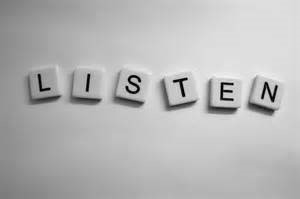“Leaders who don’t listen will eventually be surrounded
by people who have nothing to say”
– Andy Stanley
Last month I wrote about the importance of being an effective communicator (view it here). Effective written and oral communication skills are integral to succeed as a leader. If effective speaking and storytelling are the yin of being an effective communicator…the yang is being a great listener. To be an effective leader, you must be a great listener. Leaders need to be mindful and intentional of their listening abilities. Are you doing more active listening than talking? Think about why we were born with two ears and only one mouth? Listening should take up twice as much time.
How often are you, as a leader, asking questions rather than making statements or demands? How often are you focused on your audience and deeply listening rather than looking at your phone or computer when you are present in a conversation? How often do you want to fix things versus really listening to your audience? Watch this funny video called “The Nail in the Head.”
Active listening is defined as the practice of paying close attention to a speaker and asking questions to ensure full comprehension. It is about fully concentrating on what is being said rather than just passively hearing the message of the speaker. Active listening involves listening with all senses. In addition to giving full attention to the speaker, it is important that the active listener is also seen to be listening. Interest can be conveyed to the speaker by using both verbal and non-verbal messages such as maintaining eye contact, nodding your head and smiling, agreeing by saying yes or simply a “hmm” to encourage them to continue. By providing this feedback the person speaking will usually feel more at ease and therefore communicate more easily, openly and honestly.
Here is a great TEDx Youth video from a young lady who gets it.
Active listening is hard work and is a skill we all can develop. The benefits of active listening for you and others as a friend, spouse, partner, parent, and leader include:
- Creates stronger connections and relationships with others
- Creates greater engagement in others since they feel their point of view and opinions have been heard and understood
- Helps to energize and motivate others
- Creates an atmosphere of problem solving
- Builds trust and respect
- Helps to uncover misunderstanding and defuses conflict
- Improves productivity
- Improves teamwork and collaboration with your team and others
How do you become an effective active listener? Here are a few things you can do as a leader to improve.
- Assess your listening skills. Ask people you trust; colleagues, your children and spouse to give you open, honest and direct feedback as to what your listening strengths and needs for development are. Ask them what three behaviors should you continue to demonstrate and what are the three you need to stop?
- When engaging in the conversation stop and put your phone down, look away from your computer, turn off your TV, lower you iPad and sit or stand next to the person and make direct eye contact. Acknowledge and legitimize what you are hearing through your facial expressions and eye contact.
- Use short words and sounds to encourage the other to continue.
- Ask at the end of their conversation, “Do I understand you correctly?” It is important to refrain from talking after they respond. It would be easy to solve their problem; but don’t. Continue and ask questions. Demonstrate through active listening that you want to learn more and can collaborate on possible solutions.
Active listening starts with the desire to connect and engage with others and a desire to be helpful. To get good at listening it requires intentional practice and time. Don’t rush it. Listen to the feedback others have given you and start practicing new behaviors to improve your listening and start seeing the benefits of being an effective active listener. Your leadership depends on it!

